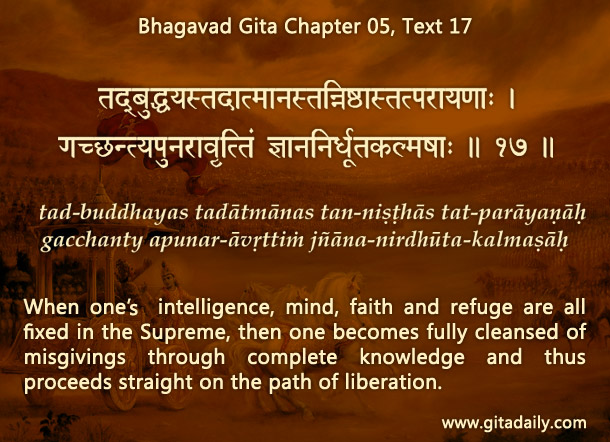Suppose a person infected with malaria refuses to take any treatment without first seeing the mosquito that bit him, and knowing when, how and why it bit.
Sounds ludicrous, doesn’t it?
We may be curious about a disease’s etiology, its manner of causation; but getting so obsessed with etiology as to neglect therapy is self-destructive. Such self-sabotaging obsession can plague our curiosity about the cause of our worldly existence. We are spiritual beings living in this material world. How we got here is impossible to know. Some blame God for having placed us in a problem-filled world; some ascribe the fall to the imprudence of a primeval human or that of the primeval soul; some point to the materialism of our environment. Though such etiological analysis can go in various directions, it hardly ever arrives at a fully satisfactory explanation. More detrimentally, obsession with remote causality often distracts us from immediate spiritual therapy.
The Bhagavad-gita (05.15) identifies ignorance as the cause of the soul’s delusion. Reflecting eminent spiritual pragmatism, the Gita doesn’t dwell inordinately on the origin of ignorance, but proceeds immediately to the potency of spiritual knowledge to dissipate that ignorance (05.16). It then delineates the best process for attaining spiritual knowledge (05.17): fixing our consciousness – our intelligence, our mind, our faith and our aspiration – on Krishna. Such focus makes enlightenment a function of not human intellectuality, but of divine mercy. The Gita (10.11) assures that Krishna illumines devotees’ hearts with the lamp of knowledge. When we practice bhakti-yoga sincerely, we experience its dual potencies: to dissipate ignorance and its concomitant attachments; and bestow clarity of perception and its concomitant increased attraction to Krishna.
By thus focusing on bhakti as the remedy for the malady of ignorance, we can avoid cognitive distractions and progress swiftly towards everlasting spiritual happiness.
To know more about this verse, please click on the image
Explanation of article:
Podcast:


Constant IAPA disipiates bad feelings